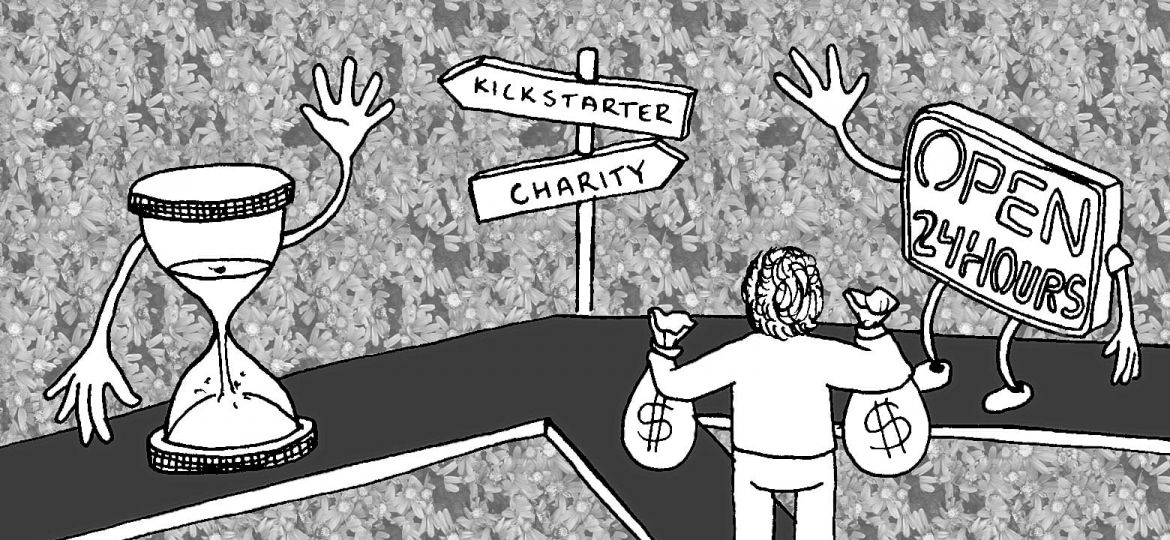
Recently, creator Rob Thomas and star Kristen Bell of “Veronica Mars” gave the show’s fans an ultimatum: If they donated two million dollars to their Kickstarter page, a “Veronica Mars” movie would be made using the funds, but if the goal was not reached within a month, the movie would never be made. It seems that the fans took this challenge seriously. Within 24 hours, the project had already exceeded its goal and made $5.7 million overall.
The Kickstarter phenomenon does not end there. St. Olaf’s popular a capella group The Limestones have started their own Kickstarter page in the hopes of funding a new album. With eight hours to go, The Limestones reached their funding goal of $3,000. One backer pledged $1,000 and, as thanks, will receive a private performance by the group.
These projects’ financial successes have probed the question of whether it is ethical to donate to a creative project rather than to a charitable organization like the American Cancer Society, International Children’s Emergency Fund UNICEF or the World Wildlife Fund WWF. The answer lies in the fact that unlike these charities, Kickstarter projects have a time limit.
Because the public is given such a short time to fund a project on Kickstarter, it is natural that they quickly take advantage of the opportunity. Like the “Veronica Mars” project, proposed Kickstarter projects only come into fruition if they receive enough funds within their time frame and therefore attract a huge amount of interest in a short period of time. Conversely, charities like WWF are always open for donations, therefore receiving funds at a slower but more consistent rate.
While the “Veronica Mars” project made an unexpected $5.7 million, this number is small compared to what most non-profit organizations NPOs make on a regular basis.
According to worldwildlife.org, the U.S. chapter of WWF made over $90 million last year in individual funds alone, not to mention the millions of dollars coming from government grants, corporate contributions and WWF network revenues.
This indicates that worries about the morality of donating to one over the other are unfounded; most organizations like WWF may not make as many millions of dollars in the same period as a Kickstarter project, but their regular income over a sustained period of time is far greater. The creative projects on Kickstarter will never receive government grants – this website is their only means of gaining visibility and subsequently receiving funds from the public. This means that their funds will generally be much lower but enough to create the project.
Further, creative projects and charitable organizations receive funds from different areas of one’s finances. People are motivated by very different things when they donate to each; for example, the novelty and nostalgia of seeing our favorite “Veronica Mars” characters in a movie motivated the show’s fans to fund the project, whereas the selfless hope to preserve certain species of animals motivates donors to contribute to WWF’s cause.
Finally, there is no reason why the public cannot give to both a creative project and to an NPO. Both actions provide the giver with a sense of personal satisfaction, knowing that they are helping to create or sustain a project meant to benefit a certain population of individuals. In both cases, the generosity of one person leads to the pleasure of many, be it fans of a certain artistic expression or supporters of a worthy cause. It all comes down to the act of giving, which in and of itself, is unquestionably moral.

